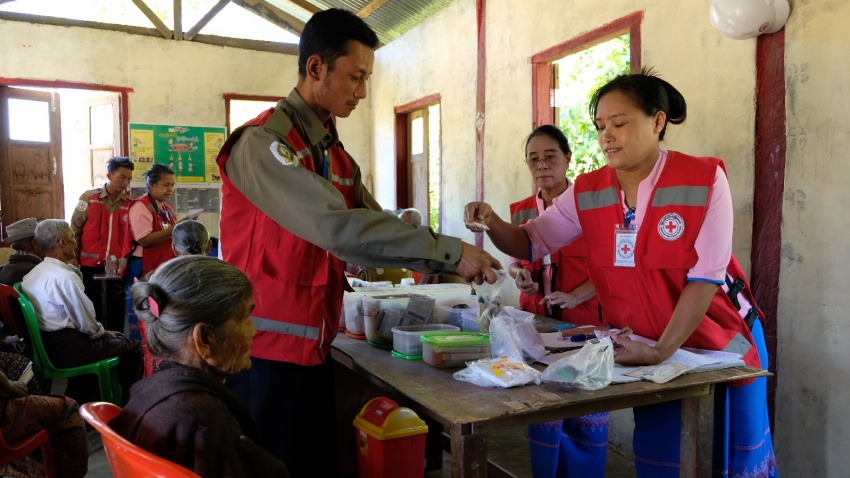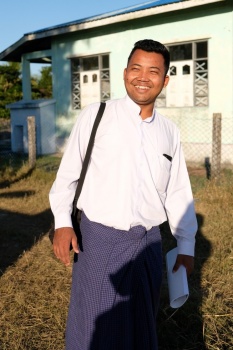
19/ Feb/ 2018
Dr Kyaw Phyo Hein, 26, has been coordinating Myanmar Red Cross Society mobile health clinics visiting villages around Sittwe town, capital of Myanmar’s Rakhine state, for almost three years.
The clinics, which visit vulnerable rural communities on a weekly basis, are part of Red Cross programme helping communities that have been affected by violence, flooding and population movement in Rakhine.
“Each mobile health team is made up of one doctor, two nurses and two volunteers who see patients and treat them. The teams cover five to ten villages each, providing health care including midwifery support.
“We visit each site at least once a week so we get to know people and build a relationship with them, and that helps us support them better because they know us and we know them, and we can see how they are progressing over a longer period of time.
“Mostly we see diarrhoea and respiratory problems, and some other communicable diseases, skin problems and some chronic problems like high blood pressure and diabetes.
“Many of the people who visit the clinics are elderly and suffer from a variety of related health issues.
“A lot of what we see is seasonal, so things like colds and flu. When we treat people we give medicine, but we also provide individual health education about how people can look after their health – what food to eat, how to stay healthy, how to take their medicine.
“We see around 50 patients per day at the clinics, and if we aren’t able to treat people fully, we can refer patients who need further care to the hospital.
“We coordinate closely with the government health department, supporting government-led health drives at the community level, such as a polio vaccination campaign in 2015, and reporting back to the health department if we see problems coming up that we feel require a wider response.
“In times of disaster, we can also be deployed as an emergency medical team, treating people and giving psychosocial support.
“I’ve been in the team for nearly three years and we’ve suffered bad flooding twice.
“We deployed to the flood-affected areas and coordinated with the government to help people. As well as treating people, we were also reporting back to the government on what the situation was in the areas we visited, what the damage was like and what the needs were.
“This is Rakhine state so of course what is happening in the north is having an impact on us. Because of the violence there are times when we have had to suspend programmes for the safety of our staff and volunteers.
“But our work here shows people that communities in areas not currently directly affected by the violence are not being forgotten.
“Trust and acceptance are really important for us to have access, and we work according to our fundamental principles, providing help based on need alone. So, it’s really important to show people in Rakhine that we are continuing to attend to their needs through our ongoing programmes, as well as supporting the emergency response.
“In this state we see poverty, violence, tensions, cyclones, landslides and flooding, and in some areas, there is very low acceptance of the work of humanitarian agencies, so it can be a very challenging place to work.” 